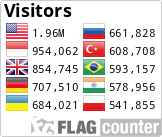Analysis of the Influence of Marketing Effort and Facilitating Condition on Purchase Intention using Customer Perceived Value Theory: An Empirical Study in Indonesia’s Electric Vehicle Market
DOI:
https://doi.org/10.59613/global.v3i2.389Keywords:
Electric Vehicles, Purchase Intention, Perceived Value, Structural Equation Modeling, Customer BehaviorAbstract
Despite electric vehicles (EVs) offering a more sustainable transportation solution, their growth in Indonesia remains constrained, reflected in a market share of less than 1% in 2023. This study examines how marketing efforts and infrastructure support influence consumer decisions in considering EV purchases, taking into account their perceptions of benefits, risks, and overall value of electric vehicles. Through an in-depth survey of 215 potential buyers from various socioeconomic backgrounds and analysis using statistical modeling, this research reveals that effective marketing strategies not only enhance consumer understanding of EV benefits but also successfully reduce their concerns, while the availability of supporting infrastructure such as charging stations proves more effective in reducing consumer anxiety than directly increasing perceived benefits. Consumers' assessment of EVs' overall value emerges as the key factor driving purchase intention, explaining more than half the variation in consumer decisions. This research provides fresh insights into how Indonesian consumers evaluate new transportation technology requiring significant investment, while highlighting the importance of coordinated infrastructure development, balanced marketing communications, and business model innovations to address financial barriers in accelerating the transition toward more sustainable mobility in Indonesia.
Downloads
Published
How to Cite
Issue
Section
License
Copyright (c) 2025 Adrian Bany Kansil, So Yohanes Jimmy, Kris Ade Sudiyono

This work is licensed under a Creative Commons Attribution 4.0 International License.













